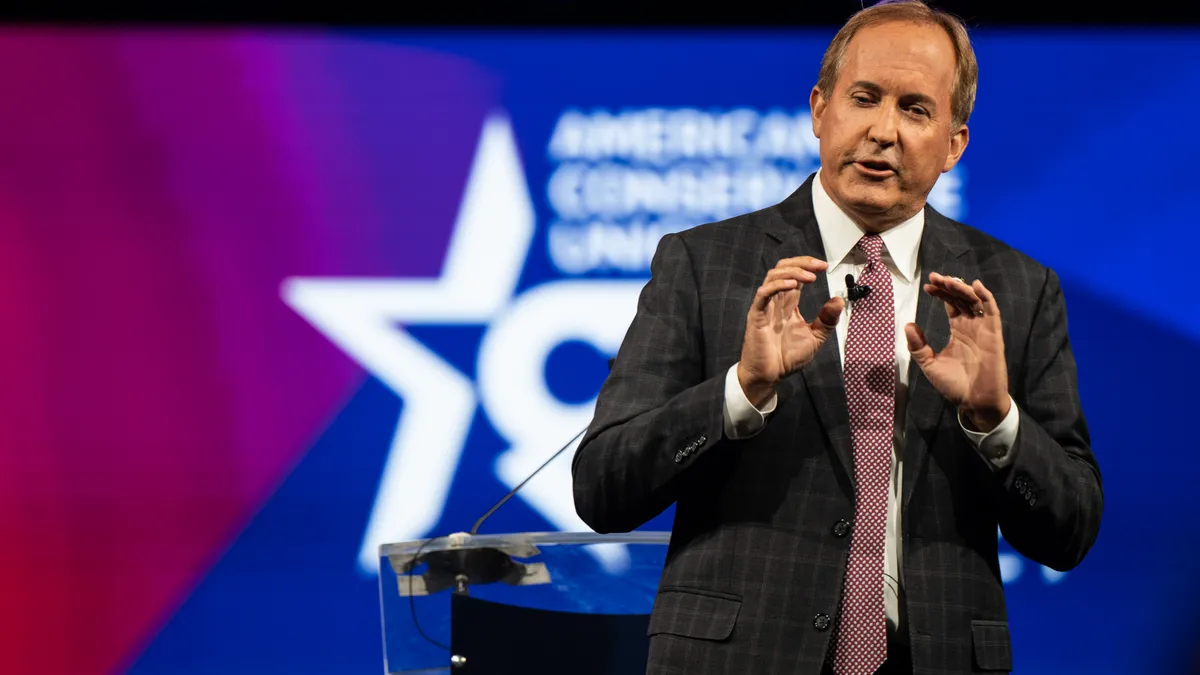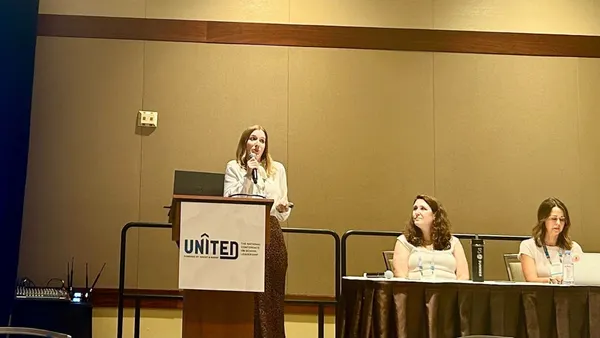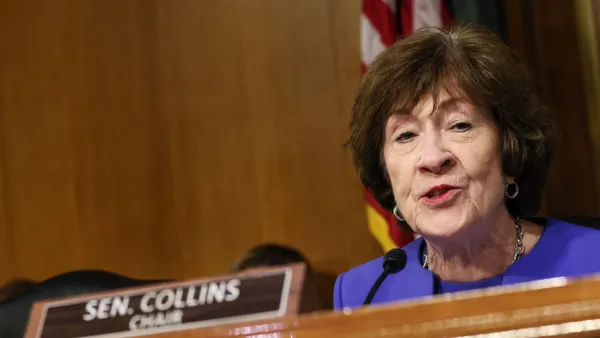Dive Brief:
-
Five states — Texas, Alabama, Florida, Georgia, and South Carolina — filed two separate but similar lawsuits against the Biden administration's Title IX rule on Monday, just two weeks after its release. They're the first lawsuits of their kind, kicking off what is expected to be a litany of challenges against the long-awaited regulation.
-
One lawsuit, filed by Texas Attorney General Ken Paxton, says the U.S. Department of Education "has attempted to effect radical social change in our Nation’s schools" by interpreting Title IX to include protections for LGBTQ+ students.
-
The second lawsuit, filed by Alabama, Florida, George and South Carolina along with several conservative civil rights organizations, was filed on behalf of college athletes and parents who also take issue with the rule's inclusion of LGBTQ+ students. Both lawsuits seek to block the rule in the short- and long-term while keeping the 2020 Title IX rules stay in effect.
Dive Insight:
The 84-page lawsuit filed in the Northern District of Alabama and the 30-page lawsuit filed in the Northern District of Texas follow through on warnings from conservative state leaders that they would be prepared to sue if the Education Department rewrote regulations to include LGBTQ+ protections.
The Education Department's Title IX final rule, released on April 19 after significant delay, for the first time protects LGBTQ+ students under the 1972 anti-sex discrimination law. The final rule was published in the Federal Register on Monday.
Plaintiffs in both suits say the department exceeded its authority in finalizing the rule, and that it violated multiple federal provisions that include Title IX itself and a spending provision under the Constitution that allows federal funding to be conditional.
State superintendents from two of the states that sued — Florida and South Carolina — joined three other state leaders last week in directing their local districts to disregard the Title IX rule. Those superintendents did so in anticipation of legal challenges to the rule and also warned the rule could run counter to state laws.
In response to those letters, the Education Department reminded schools that they must comply with the final regulations as a condition of receiving federal funds.
In fact, the lawsuit filed in Alabama on Monday claims the rule would jeopardize significant federal funding for states "if they refuse or otherwise violate the Department’s new interpretation of Title IX, leaving the States with 'no real option but to acquiesce.'"
If this or another challenge to the rule reaches the U.S. Supreme Court, Title IX experts predict it would butt heads with a landmark 2020 case, Bostock v. Clayton County, in which the high court held LGTBQ+ discrimination to be unlawful in the workplace under Title VII employment law.
Legal experts anticipate that Bostock's interpretation would ultimately extend to Title IX. Last year, the 11th U.S. Circuit Court of Appeals decided just that in Adams v. School Board of St. Johns County. That case was brought in Florida after a transgender student was barred from using a bathroom that aligned with his gender identity.
The newly filed Title IX lawsuits, however, say Bostock's application to the anti-sex discrimination law is flawed.
"Bostock’s reasoning doesn’t apply here," the Alabama lawsuit says. "For good reasons … workplace environments are fundamentally different from educational environments and carry a different set of considerations."
In its lawsuit, Texas similarly claims the department invokes a "misguided reliance on Bostock."
"Biden’s new Title IX regulation is a vile obscenity: it forces women and girls to share locker rooms and restrooms with men," said Stephen Miller, president of America First Legal, which is co-counsel on the Texas suit, in a statement on Monday. "It forces them to call a he, a she, and to pretend in every way that a man is a woman, humiliating, degrading, and erasing women."
Supporters of the rule, on the other hand, say it offers much-needed protections for LGBTQ+ students, who are often subject to anti-LGBTQ+ bullying and are targeted by legislation spreading in conservative states.
“No one should face bullying or discrimination just because of who they are or who they love," said U.S. Secretary of Education Miguel Cardona on April 18, a day before the rule's release. "Sadly, this happens all too often.”














